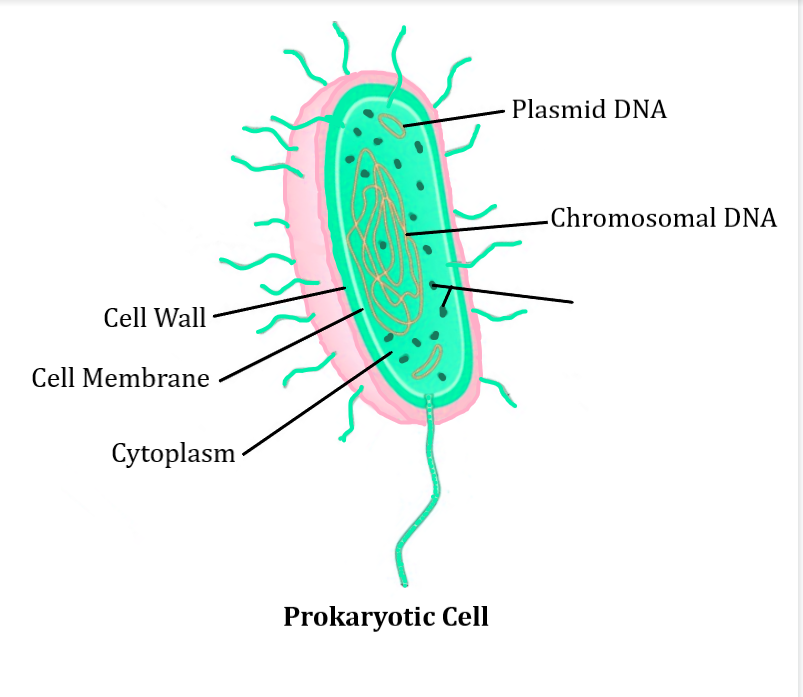
Why are the cells generally of a small size?
Answer
592.5k+ views
Hint: Small size of the cell makes it easy to carry metabolic movement similar to the movement of things from smaller utensils and the nucleus can also control the cytoplasmic processes in a good manner.
Complete answer:
Cells are so little so that they can maximize their ratio of area to volume. Smaller cells have a better ratio which allows more molecules and ions to be manipulated across the cell membrane per unit of cytoplasmic volume. Cells are so small because they have to be ready to get the nutrients in and therefore the waste out quickly. The important point is that the area to the volume ratio gets smaller as the cell gets larger. Thus, if the cell grows beyond a particular limit, not enough material is going to be ready to cross the membrane fast enough to accommodate the increased cellular volume. That's why cells are so small.
Additional Information:
Cells are of two types: eukaryotic, which contain a nucleus, and prokaryotic, which don't. Prokaryotes are single-celled organisms, while eukaryotes are often either single-celled or multicellular.

Note:
-The cell (from Latin cella, meaning "small room") is the basic structural, functional, and biological unit of all known organisms.
-A cell is the tiniest unit of life. Cells are often called the "building blocks of life". The smallest cell is Mycoplasma (PPLO-Pleuropneumonia like organisms). It's about 10 micrometers in size.
-The most important cell is an ovum of an ostrich.
-A cell type is a classification to distinguish between morphologically or phenotypically distinct cell forms within a species.
Complete answer:
Cells are so little so that they can maximize their ratio of area to volume. Smaller cells have a better ratio which allows more molecules and ions to be manipulated across the cell membrane per unit of cytoplasmic volume. Cells are so small because they have to be ready to get the nutrients in and therefore the waste out quickly. The important point is that the area to the volume ratio gets smaller as the cell gets larger. Thus, if the cell grows beyond a particular limit, not enough material is going to be ready to cross the membrane fast enough to accommodate the increased cellular volume. That's why cells are so small.
Additional Information:
Cells are of two types: eukaryotic, which contain a nucleus, and prokaryotic, which don't. Prokaryotes are single-celled organisms, while eukaryotes are often either single-celled or multicellular.

Note:
-The cell (from Latin cella, meaning "small room") is the basic structural, functional, and biological unit of all known organisms.
-A cell is the tiniest unit of life. Cells are often called the "building blocks of life". The smallest cell is Mycoplasma (PPLO-Pleuropneumonia like organisms). It's about 10 micrometers in size.
-The most important cell is an ovum of an ostrich.
-A cell type is a classification to distinguish between morphologically or phenotypically distinct cell forms within a species.
Recently Updated Pages
Master Class 11 Computer Science: Engaging Questions & Answers for Success

Master Class 11 Business Studies: Engaging Questions & Answers for Success

Master Class 11 Economics: Engaging Questions & Answers for Success

Master Class 11 English: Engaging Questions & Answers for Success

Master Class 11 Maths: Engaging Questions & Answers for Success

Master Class 11 Biology: Engaging Questions & Answers for Success

Trending doubts
One Metric ton is equal to kg A 10000 B 1000 C 100 class 11 physics CBSE

There are 720 permutations of the digits 1 2 3 4 5 class 11 maths CBSE

Discuss the various forms of bacteria class 11 biology CBSE

Draw a diagram of a plant cell and label at least eight class 11 biology CBSE

State the laws of reflection of light

Explain zero factorial class 11 maths CBSE




